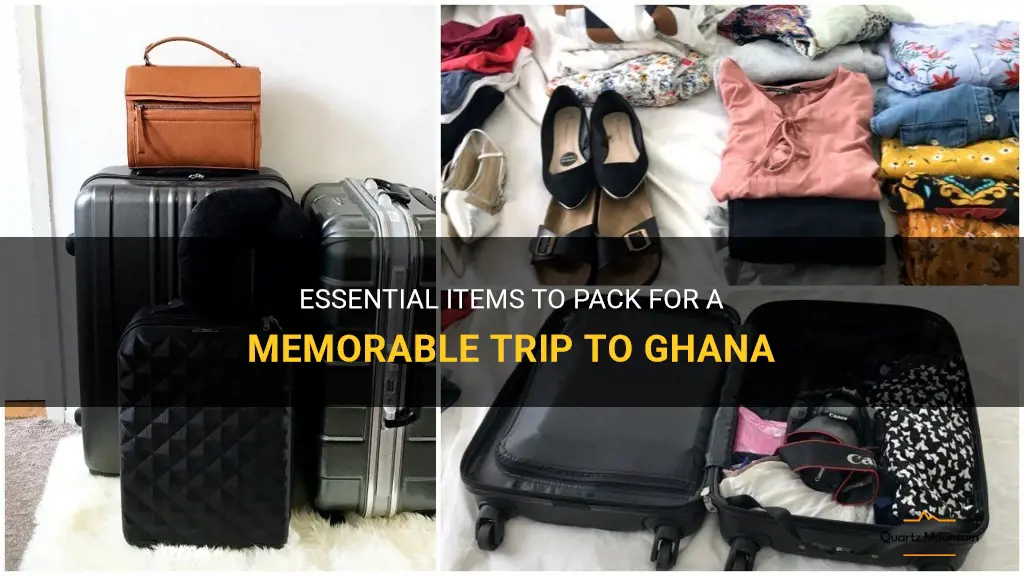
Planning a trip to Ghana, the vibrant country known for its rich history, diverse culture, and breathtaking landscapes, is an exciting endeavor. As you prepare for your adventure, don't forget to pack the essential items that will ensure a memorable and comfortable journey. From mosquito repellent to lightweight clothing, this guide will help you prioritize what to bring along on your trip to Ghana, allowing you to make the most of your time exploring this captivating destination.
| Characteristics | Values |
|---|---|
| Climate | Tropical |
| Currency | Ghanaian Cedi |
| Language | English |
| Time Zone | GMT |
| Plug Type | Type D/G |
| Visa | Required |
| Vaccinations | Yellow fever |
| Clothing | Lightweight |
| Medications | Malaria tablets |
What You'll Learn
- What are the essential items to pack for a trip to Ghana?
- Are there any specific clothing items or accessories that are recommended for a trip to Ghana?
- What medical supplies or medications should be included in your packing list for Ghana?
- Are there any cultural or etiquette considerations that should be taken into account when deciding what to pack for Ghana?
- Are there any specific electronics or adapters that should be included in your packing list for Ghana?

What are the essential items to pack for a trip to Ghana?
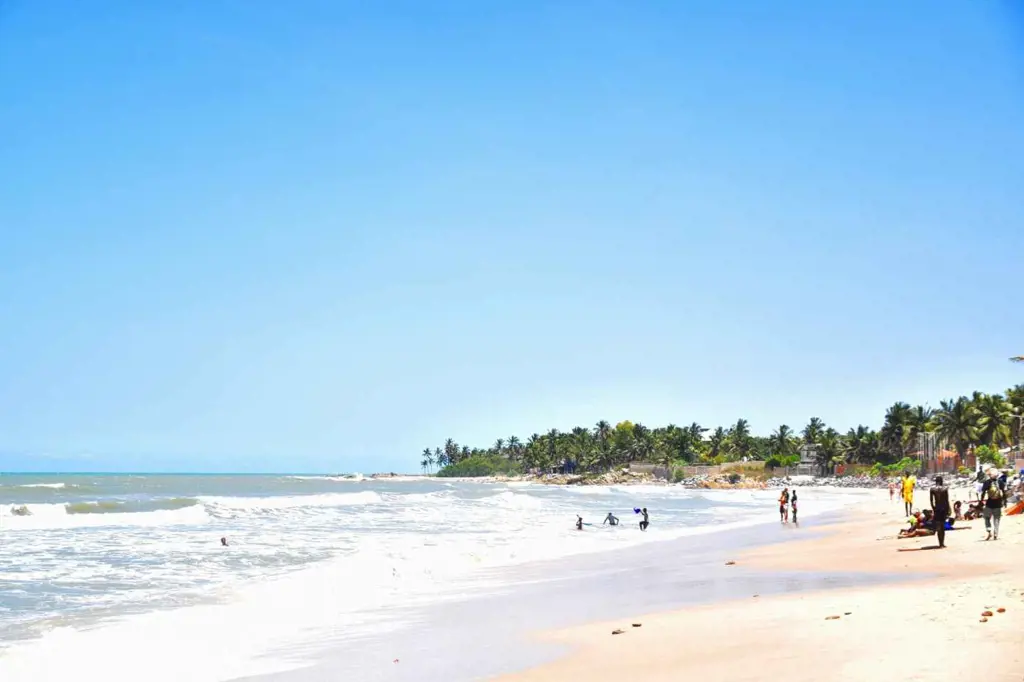
When packing for a trip to Ghana, it is important to consider the local climate, culture, and necessary items for a comfortable and convenient stay. Here are the essential items to pack for a trip to this West African country:
- Lightweight, breathable clothing: Ghana has a tropical climate, with high temperatures and humidity. Pack lightweight, breathable clothing made from natural fibers such as cotton or linen. Opt for loose-fitting clothes to stay cool and comfortable. Don't forget to pack a hat and sunglasses to protect yourself from the sun.
- Mosquito repellent: Ghana is known for its mosquito population, which can transmit diseases such as malaria. It is essential to pack mosquito repellent containing DEET to protect yourself from mosquito bites. Additionally, consider packing long-sleeved clothing and mosquito nets to further minimize the risk of mosquito-borne illnesses.
- Travel adapter: Ghana uses a different type of power outlet compared to many other countries. Ensure you pack a travel adapter to be able to charge your electronic devices conveniently.
- First aid kit: It is always advisable to carry a basic first aid kit when traveling to any destination. Include essentials such as band-aids, antiseptic ointment, pain relievers, antihistamines, and any necessary medications you may need during your trip.
- Travel documents: Make sure to carry all relevant travel documents, including your passport, visa, and any necessary vaccination certificates. It is also a good idea to have a photocopy of these documents in case of loss or theft.
- Cash and credit cards: Although there are ATMs and credit card facilities available in major cities, it is advisable to carry some cash in local currency (Ghanaian Cedi) for smaller establishments or places that may not accept cards. It is also recommended to inform your bank about your travel plans to avoid any issues with your credit or debit cards.
- Comfortable shoes: Ghana has diverse landscapes, including sandy beaches and rocky terrains. Pack comfortable closed-toe shoes for activities such as hiking or exploring rural areas. It is also a good idea to bring a pair of sandals or flip-flops for beachwear.
- Sunscreen and toiletries: Protect your skin from the sun's harsh rays by packing a high SPF sunscreen. Also, bring essential toiletries such as shampoo, conditioner, toothbrush, toothpaste, and any other personal care items you may need during your trip. While some toiletries may be available locally, it is best to bring your preferred brands.
- Insect repellent clothing: Consider investing in clothing treated with insect repellent, such as permethrin. This can provide an added layer of protection against mosquitoes and other insects.
- Water purification tablets: To avoid drinking tap water, it is advisable to carry water purification tablets or a water filter bottle. This will ensure access to safe drinking water throughout your trip.
It is important to note that the above list may vary depending on the specific activities and duration of your trip to Ghana. It is always best to research and plan accordingly to ensure a comfortable and enjoyable experience while traveling in this beautiful country.
Essential Items Every Woman Should Pack for a Vegas Trip in October
You may want to see also

Are there any specific clothing items or accessories that are recommended for a trip to Ghana?
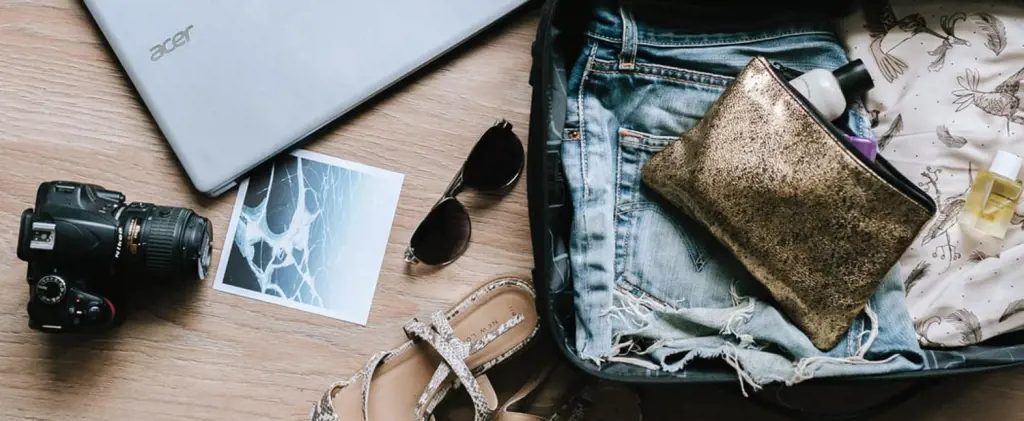
Ghana is a beautiful country located in West Africa, known for its vibrant culture, rich history, and stunning landscapes. If you have plans to visit Ghana, it's important to consider the specific clothing items or accessories that are recommended for your trip. The climate in Ghana is generally hot and humid, with temperatures hovering around 30 degrees Celsius (86 degrees Fahrenheit) throughout the year. Here are some tips to help you pack for your trip to Ghana.
Lightweight and breathable clothing:
Due to the hot and humid weather in Ghana, it is advisable to pack lightweight and breathable clothing. Opt for natural fabrics such as cotton or linen, as they allow air to circulate and keep you cool. Loose-fitting clothing is also recommended to help you stay comfortable in the high temperatures.
Light colors:
Choose light-colored clothing as they tend to reflect the sunlight rather than absorb it, keeping you cooler. Dark colors, on the other hand, tend to absorb heat and can make you feel even hotter under the scorching sun.
Sun protection:
Don't forget to pack sun protection items such as a wide-brimmed hat and sunglasses to shield yourself from the strong African sun. Sunscreen with a high SPF is also essential to protect your skin from harmful UV rays.
Modest attire:
Ghana is a conservative country, especially in rural areas and traditional villages. It is respectful to dress modestly, particularly when visiting religious or cultural sites. Pack lightweight, loose-fitting clothing that covers your shoulders and knees to adhere to local customs.
Comfortable footwear:
Pack comfortable, sturdy footwear for your trip to Ghana. Sandals or flip-flops are ideal for the beach or casual outings, while a pair of closed-toe shoes or hiking boots is recommended for more adventurous activities such as trekking or exploring nature reserves.
Rain gear:
Ghana experiences two main seasons – the rainy season and the dry season. If you plan to visit during the rainy season (April to October), it is advisable to pack a lightweight rain jacket or an umbrella to protect yourself from sudden downpours.
Insect repellent and mosquito nets:
Ghana, like many other tropical countries, is prone to mosquito-borne diseases such as malaria. It is crucial to pack insect repellent with a high concentration of DEET to ward off mosquitos. Additionally, consider bringing a portable mosquito net if you plan on staying in areas with a high mosquito population.
Swimwear:
Ghana is home to beautiful beaches, so remember to pack your swimwear if you plan to take a dip in the ocean or relax by the beach.
In summary, when planning a trip to Ghana, it is essential to pack lightweight, breathable clothing in light colors to stay cool in the hot and humid climate. Modest attire is also recommended to respect local customs, especially when visiting religious or cultural sites. Don't forget to bring sun protection items, comfortable footwear, rain gear (if visiting during the rainy season), insect repellent, and swimwear to fully enjoy your Ghanaian adventure. Happy travels!
Essential Items to Pack for a Kids Sleepover
You may want to see also

What medical supplies or medications should be included in your packing list for Ghana?
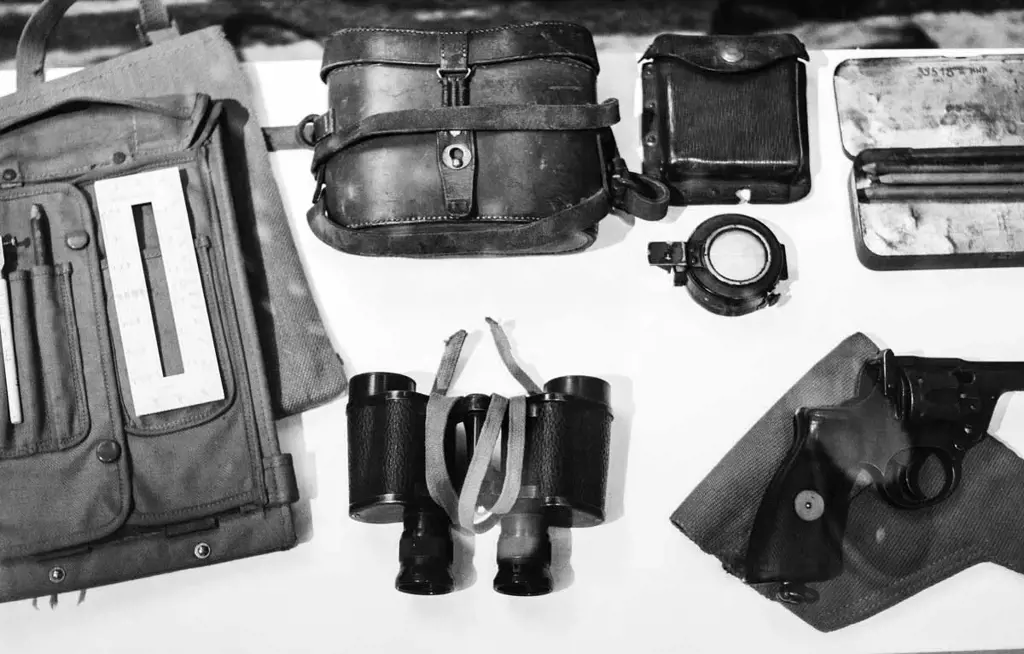
Traveling to Ghana can be a thrilling and enriching experience, but it's essential to be prepared for any potential medical issues that may arise. It's important to pack certain medical supplies and medications that can help you stay healthy and address any minor illnesses or injuries that may occur during your trip. Here is a comprehensive packing list of medical supplies and medications that you should consider including in your travel kit for Ghana.
- Mosquito repellent: Ghana is located in a region where mosquito-borne diseases such as malaria are prevalent. It is crucial to bring a strong mosquito repellent containing DEET or Picaridin to protect yourself from mosquito bites.
- Anti-malaria medication: Consult with your doctor or travel clinic before your trip to obtain the necessary anti-malaria medication. It is essential to take these medications as directed to prevent contracting malaria during your stay in Ghana.
- Diarrhea medication: Traveler's diarrhea is a common concern while visiting new countries. Pack over-the-counter anti-diarrheal medications such as Imodium to alleviate symptoms. It is also advisable to bring rehydration salts to replenish fluids and electrolytes lost during diarrhea.
- Pain relievers: Pack basic pain relievers such as acetaminophen or ibuprofen to address common aches, headaches, and minor injuries. These medications can also be useful for reducing fever if necessary.
- Allergy medication: If you have known allergies, ensure you pack antihistamines such as Benadryl to manage allergic reactions. Be aware of local allergens and take necessary precautions.
- Bandages and dressings: It's wise to bring a small supply of bandages, adhesive tape, and sterile dressings to attend to minor cuts, blisters, or abrasions. These items can be useful for preventing infections and promoting healing.
- Insect bite cream: In addition to using mosquito repellent, it is advisable to pack a cream or ointment to soothe insect bites or stings. Look for products containing ingredients like hydrocortisone or calamine lotion.
- Sunscreen: Ghana experiences high temperatures and intense sun exposure. Protect your skin by packing a broad-spectrum sunscreen with a high SPF. Apply it generously and frequently, especially if you plan to spend time outdoors.
- Prescription medications: If you take any prescription medications, be sure to bring a sufficient supply to last the duration of your trip. It is recommended to keep these medications in their original labeled containers for easy identification at customs checkpoints.
- Basic first aid kit: Pack a small first aid kit that includes items such as adhesive bandages, antibiotic ointment, antiseptic wipes, tweezers, scissors, and a thermometer. This will enable you to handle minor medical incidents and care for minor injuries.
Remember to consult with your healthcare provider or a travel clinic before your trip to receive personalized medical advice based on your health condition and specific travel plans. They will provide you with up-to-date recommendations for vaccinations and any additional medications you may need for your trip to Ghana.
In conclusion, it's important to be well-prepared and equipped with the necessary medical supplies and medications when traveling to Ghana. By following this packing list, you can ensure your health and well-being are prioritized, allowing you to fully enjoy your time exploring this beautiful country.
Essential Items to Include in Your 1-Week Trip Packing List
You may want to see also

Are there any cultural or etiquette considerations that should be taken into account when deciding what to pack for Ghana?
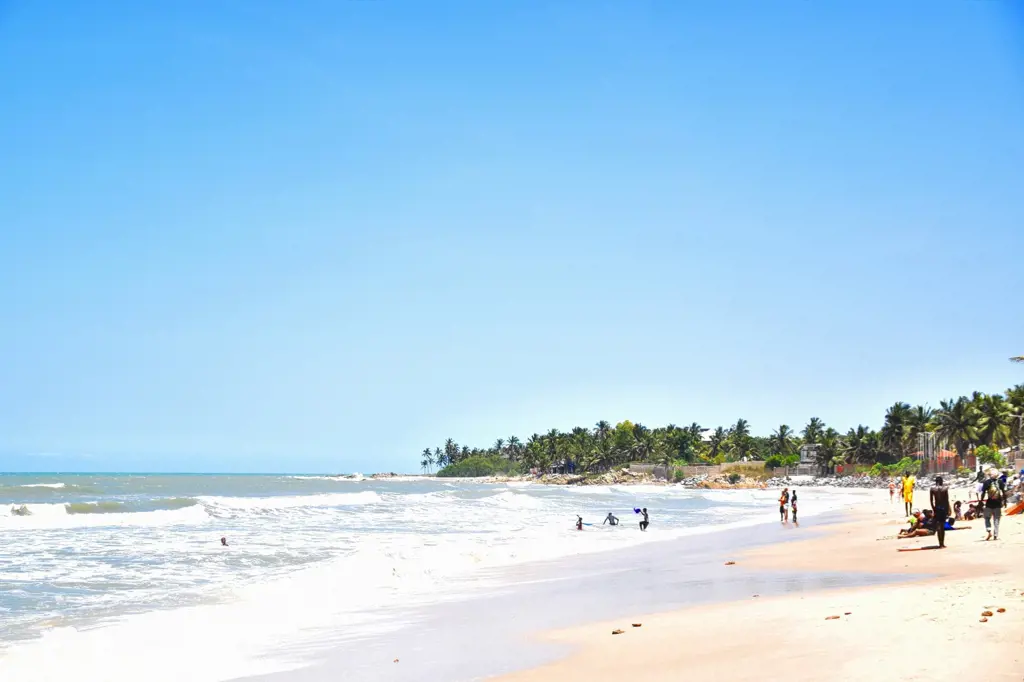
When packing for a trip to Ghana, it is important to consider the cultural and etiquette norms of the country. Ghana is a country rich in tradition and customs, and by being aware of and respecting these, you can ensure a more positive and enjoyable experience during your visit. Here are some tips on what to pack and how to dress appropriately in Ghana.
- Modest Clothing: Ghana is a country with conservative values when it comes to clothing. Both men and women should dress modestly, especially when visiting religious sites or rural areas. It is advisable to pack loose-fitting clothes that cover the shoulders and knees. Lightweight and breathable fabrics such as cotton or linen are ideal for the hot and humid climate.
- Traditional Attire: Ghanaians take pride in their traditional clothing, and it is highly appreciated if visitors show an interest in it. Consider packing a traditional outfit, such as a Kente cloth or wax print fabric, to wear on special occasions or when attending cultural events.
- Shoes: Comfortable and sturdy footwear is essential when exploring Ghana. Pack a pair of closed-toe shoes for walking in cities, as well as sandals or flip-flops for the beach or more casual outings. Avoid wearing expensive or flashy shoes, as they may attract unwanted attention.
- Respectful Accessories: Ghanaians place great importance on accessories such as hats and headscarves. It is advisable to carry a hat or a light scarf to protect yourself from the sun's rays. However, be respectful of local customs and remove your hat when entering religious sites or during national events.
- Swimwear: If you plan on visiting Ghana's beautiful beaches or swimming in pools, pack appropriate swimwear that covers the body. Bikinis and revealing swim trunks are not typically worn in public, so it is best to opt for more modest options.
- Mosquito Protection: Ghana is located in a malaria-prone zone, and mosquito-borne illnesses are a concern. Pack lightweight, long-sleeved shirts and pants to protect yourself from mosquito bites, especially during dawn and dusk hours. Additionally, bring mosquito repellent with a high percentage of DEET to further prevent mosquito bites.
- Sun Protection: The sun in Ghana can be intense, so it is crucial to pack and regularly apply sunscreen with a high SPF. Wide-brimmed hats and sunglasses are also useful for protecting your face and eyes from the sun's rays.
- Electronics and Adapters: If you plan on bringing electronics, such as cameras, laptops, or phones, pack the necessary adapters for Ghana's electrical outlets. The country uses the British-style three-pin plugs, so make sure to have the appropriate adapters to charge your devices.
- Cultural Sensitivity: Ghanaians appreciate visitors who respect and embrace their culture. Avoid packing clothing with offensive or suggestive slogans or images. It is also important to be respectful when photographing people or religious sites. Always ask for permission before taking someone's photo, and be aware that some religious and cultural sites may prohibit photography altogether.
- Medications and Health Precautions: Consult with your doctor or travel clinic before your trip to Ghana to ensure you have the necessary vaccinations and medications. Pack a basic first aid kit, including diarrhea medication, insect repellent, and any prescription medications you may require.
By considering these cultural and etiquette considerations when packing for Ghana, you can show respect for the local customs and traditions while enjoying a safe and memorable trip. Remember to familiarize yourself with the local customs and sensitivities of the specific regions you plan to visit in Ghana, as customs may vary within the country.
The Ultimate Guide: Packing the Perfect High School Lunch
You may want to see also

Are there any specific electronics or adapters that should be included in your packing list for Ghana?
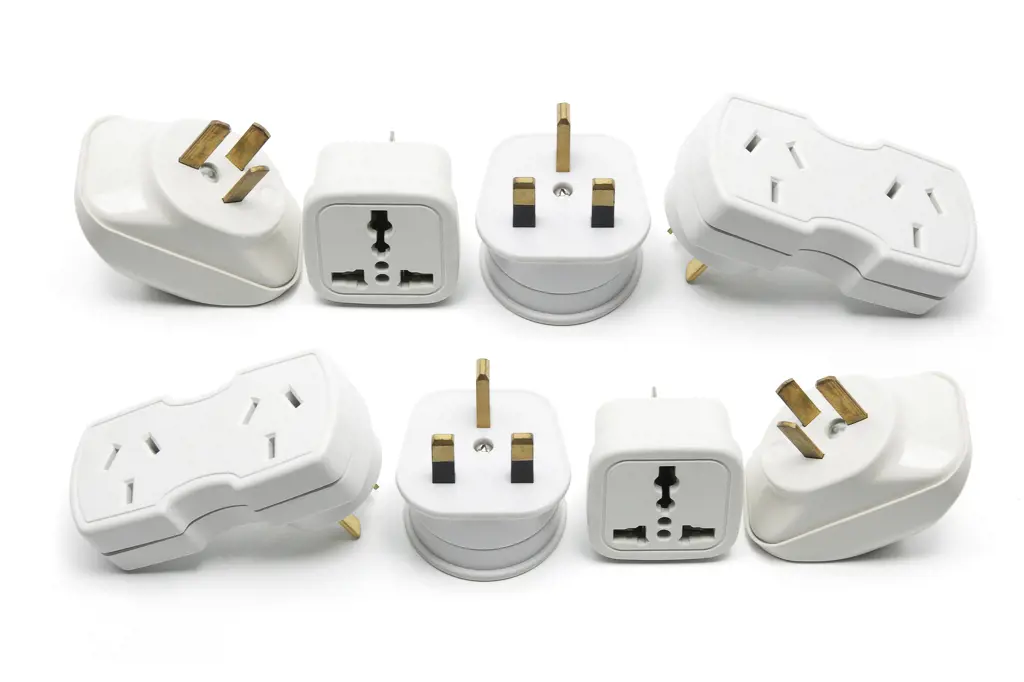
When packing for a trip to Ghana, it is important to consider the specific electronic devices and adapters that you will need to ensure a smooth and hassle-free experience. Ghana is located in West Africa and operates on a 230-volt electrical system, which may differ from the electrical systems in your home country. Here are some essential electronics and adapters to include in your packing list for Ghana:
- Universal Power Adapter: Since Ghana uses a different voltage and electrical outlet type than many other countries, it is crucial to bring a universal power adapter. This adapter will allow you to plug in your electronic devices and charge them safely and efficiently. Make sure to choose a universal adapter that is compatible with Type G electrical outlets, which are commonly used in Ghana.
- External Battery Pack: Access to electricity may be limited in some areas of Ghana, especially in rural regions. To ensure that your electronic devices stay powered, consider bringing an external battery pack. These portable chargers can provide an additional power source for your smartphone, tablet, or camera when you are on the go.
- Voltage Converter: In addition to a universal power adapter, you may also need a voltage converter if your electronic devices are not compatible with the 230-volt electrical system in Ghana. Some electronic devices, such as laptops or camera battery chargers, may be dual voltage, but it is essential to check the specifications before plugging them in. Using a voltage converter will prevent any damage to your devices caused by a mismatch in voltage.
- Laptop or Tablet: If you plan on staying in Ghana for an extended period or need to work while traveling, consider bringing a laptop or tablet. These devices allow you to stay connected, work remotely, and access important information while on the go. Just remember to bring the necessary power adapters and voltage converters for your specific device.
- Camera and Accessories: Ghana offers stunning landscapes, vibrant markets, and rich cultural experiences that you will want to capture. Don't forget to pack your camera and any necessary accessories, such as extra batteries, memory cards, and lenses. It is also a good idea to bring a camera bag or case to protect your equipment from dust, moisture, and potential damage.
- Portable Wi-Fi Hotspot: If you rely heavily on internet connectivity, consider bringing a portable Wi-Fi hotspot. This device allows you to create your own Wi-Fi network and stay connected to the internet wherever you go. It can be especially useful if you are traveling to remote areas where internet access may be limited.
- Travel Adapter Plug: In addition to a universal power adapter, it is also a good idea to bring a travel adapter plug. This plug allows you to charge your electronic devices using the outlets found in hotels, guesthouses, and other accommodations. It is advisable to bring multiple travel adapter plugs to ensure that you can charge your devices simultaneously without any issues.
Before packing your electronic devices, make sure to check the voltage and plug type used in Ghana. This information can usually be found in the user manuals or specifications of your devices. It is also recommended to contact your accommodation in Ghana and inquire about the electrical system to ensure you have the correct adapters and converters.
In conclusion, when traveling to Ghana, it is advisable to include specific electronics and adapters in your packing list to ensure a smooth and hassle-free experience. A universal power adapter, external battery pack, voltage converter, laptop or tablet, camera and accessories, portable Wi-Fi hotspot, and travel adapter plug are all essential items to consider. By being prepared and bringing the necessary equipment, you can enjoy your time in Ghana and stay connected with ease.
Essential Items to Pack for a Trip to Chicago
You may want to see also
Frequently asked questions
It is recommended to pack lightweight and breathable clothing for Ghana, as the weather is usually hot and humid. Cotton and linen fabrics are ideal, as they allow for better air circulation and can help keep you cool. It is also important to pack modest clothing, as Ghana is a conservative country. Shorts and tank tops may be acceptable for beach towns, but it is best to have more conservative options for visiting cities and rural areas.
Some essential items to pack for a trip to Ghana include sunscreen, insect repellent, a hat, and sturdy walking shoes. The sun in Ghana can be intense, so it is important to protect your skin with sunscreen and a hat. Insect repellent will help ward off mosquitoes and other insects, as Ghana is a tropical country with a risk of diseases like malaria. Sturdy walking shoes are important, as you may be doing a lot of walking on uneven surfaces or through rural areas. It is also a good idea to bring a reusable water bottle and any necessary medications.
In addition to clothing and essential items, there are a few other items you may want to consider packing for a trip to Ghana. These include a power adapter, a lightweight rain jacket or umbrella, a money belt or hidden pouch for carrying valuables, and a small first aid kit. Ghana uses Type G electrical outlets, so a power adapter will be needed if you plan to charge electronic devices. While Ghana has a dry and rainy season, a lightweight rain jacket or umbrella can be handy for unexpected rain showers. A money belt or hidden pouch can help keep your valuables safe while traveling, as pickpocketing can occur in crowded areas. Lastly, a small first aid kit with basic medication and bandages can be helpful for minor injuries or illnesses.







